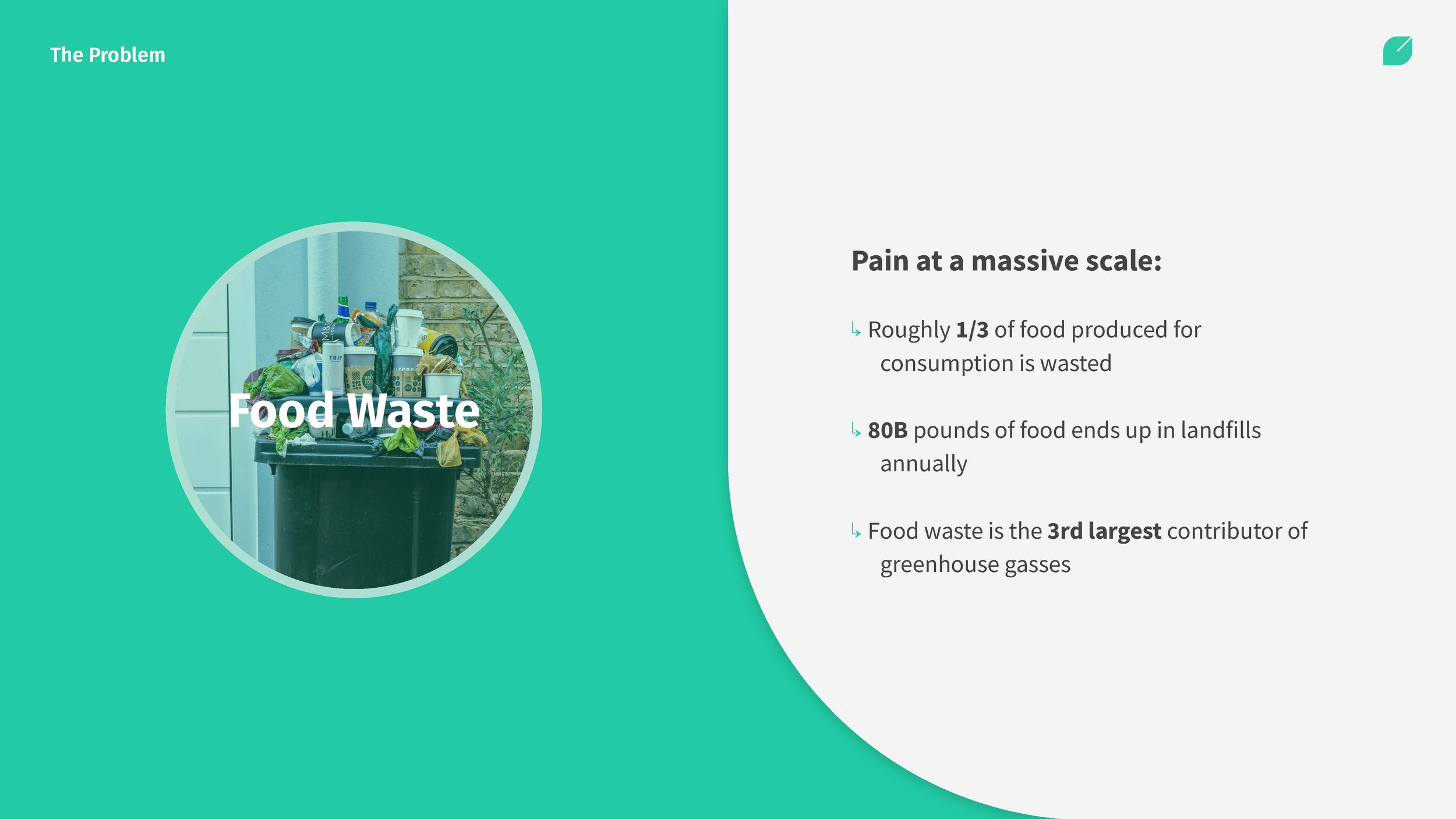Sous: Conscious Kitchen Assistant
Helping consumers reduce food waste, eat healthier and save money through responsible kitchen management.
sous-chef [noun; French soo-shef]
The second in command in a kitchen; the person ranking next after the head chef.
Completed At
CCA DMBA: Innovation Studio
Team
Eryn Bathke
Christopher Chen
Jody Hurt
Eric Tu
My Role
Concept Development
Experience (UX) Design
Product Roadmapping
Prototyping + Wireframing
User Testing
Visual Design
How might we promote accountability in the kitchen and incentivize consumers to reduce food waste?
The Challenge
Food waste is a recurring problem that affects global supply chains all the way down to individual consumers – one that requires practical solutions to enable efficient food ecosystems that are easy to maintain and produce sustainable results. With such a broad scope, our team set out to address this issue at the consumer level, where 40-50% of food waste occurs:
Annual consumer food waste:
238 lbs – food waste per person
$1,800 – value of food wasted per person
32% – average household food waste
Customer + Market Research
Persona Development
The first step was to understand consumer behavior around food – from shopping at the grocery store, to cooking in the kitchen, to cleaning up waste. We used both qualitative and quantitative research methods to gather data, observe patterns, generate insights, and ultimately develop consumer personas that would inform our design concept.
The Conscious Consumer
Anne / F / 34
"It made me feel bad for people less fortunate than our family who could use the food that we waste after each meal."
Market Sizing
When sizing our serviceable market, our research revealed that 45% of working adults are aware of the food waste problem. We further cut our market size based on generational affinity to sustainability goals, focusing on younger + progressive demographics. Lastly, we made reasonable assumptions about the share of market we could capture based on our competition.
Competitive Analysis
Our initial research led us to identify convenience and accomplishment as key differentiators in this space. Very few competitive solutions both fit into a user’s life with ease and produced a high sense of accomplishment to counteract the negative emotions associated with food waste.
Concept Definition
Differentiators
Further analysis revealed points of parity between our concept and existing food + kitchen management products. In order to differentiate, we brought specific features to the forefront that were absent amongst the competition and chose to focus on a more tailored customer experience with data-driven recommendations.
“For conscious consumers, Sous assists the management of your kitchen by tracking behaviors and introducing personalized recommendations conveniently into your routine to reduce waste, save money, and promote healthy habits.”
Product Values
We crafted three core product values to guide our concept and feature development – values that consider the long-term implications of the food waste problem, and take into account the human factor in both perpetuating and solving it.
Design Roadmap
Leveraging our customer insights and the ‘jobs to be done’ framework, we developed a set of features to address Sous’ primary user needs. We then prioritized these features using the MoSCoW method (Must have / Should have / Could have / Won’t have), identifying a core set to include in the MVP release along with additional features and phases for future releases.
Prototyping
Inventory Mangement
Update & manage your kitchen inventory with ease
Track recommended expiration dates
Build shopping + ingredient lists
Add and remove items
Recipe Recommendations
Discover new recipes using ingredients you have ready
Detailed cooking instructions
Save and favorite recipes
Reviews + cook times
Data-Driven Insights
Track your progress towards reducing impact and waste
Real-time consumption and waste monitoring
Environmental impact metrics
Grocery spending tracker
Meal Planning
Efficiently plan & schedule meals to mitigate over-buying
Choose from diet and cost based plans
Adjust servings and portion size
Auto-generate shopping lists
Measurement + User Testing
Key Performance Indicators
What gets measured gets managed. To fully understand the performance of our product, we defined four categories for success – monetization, engagement, waste reduction, and happiness – to track with users across our testing phases. Data from these metrics will validate the desirability and viability of the Sous concept, while also exposing weaknesses to address before launch.
Riskiest Assumption Test
We tested our prototype with our target customer segment, and while each found our offering to be useful they were clear that it wasn’t something they necessarily desired. With valuable new insights from these end users, we went back to iterate on the concept and improve our value proposition before another round of testing.













